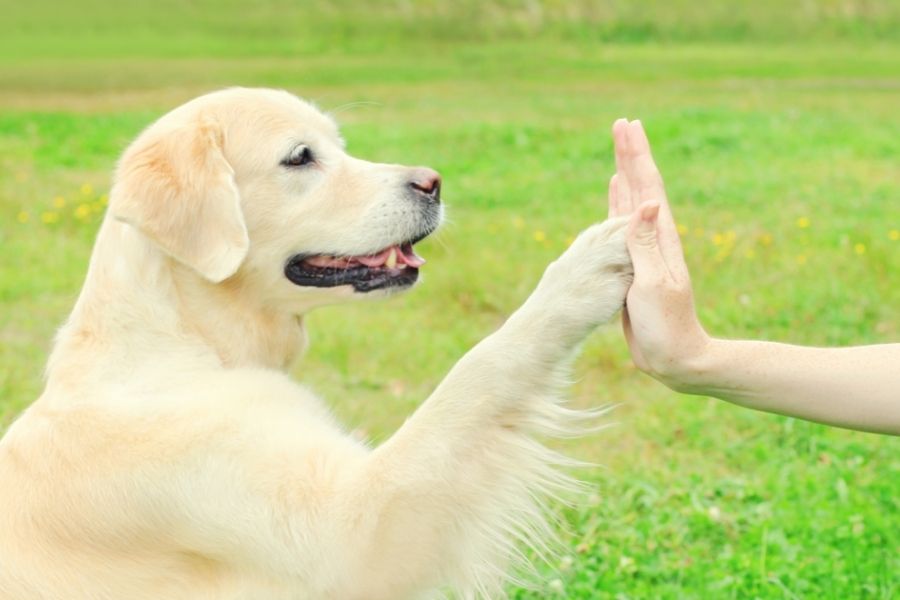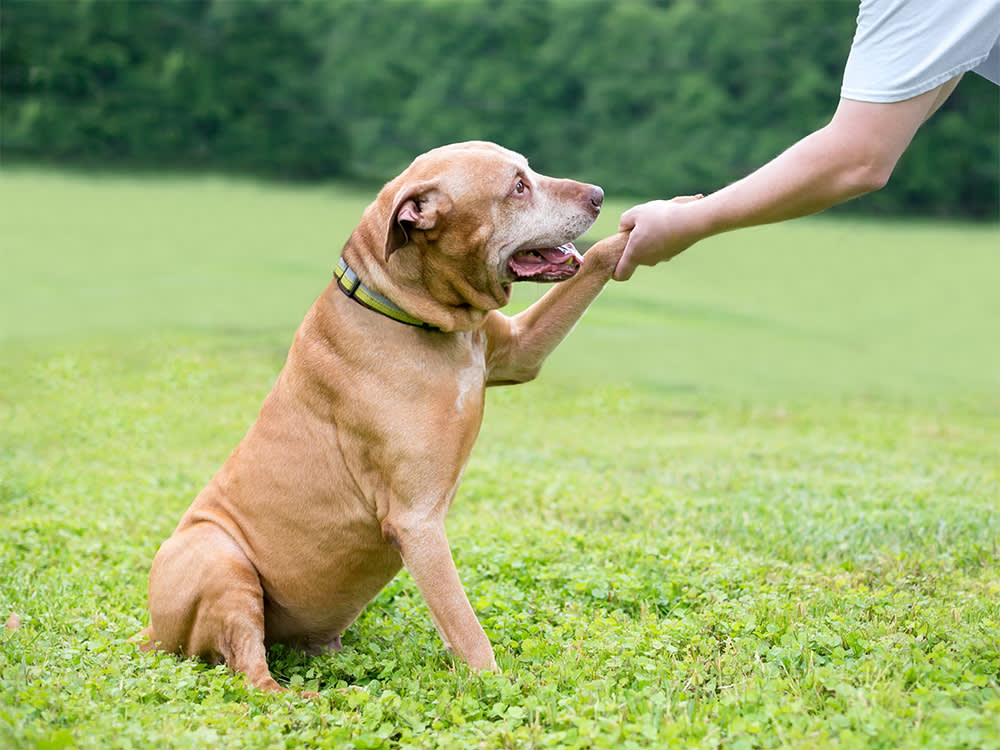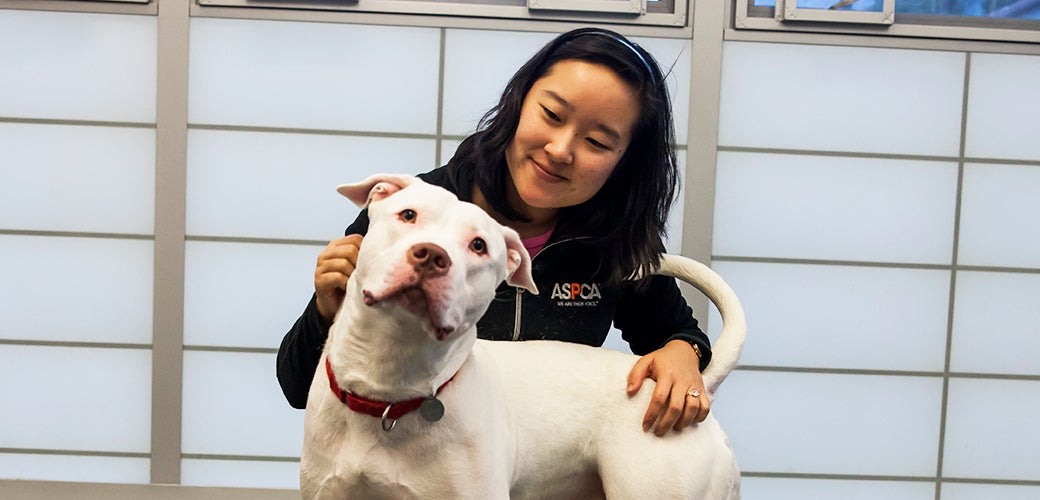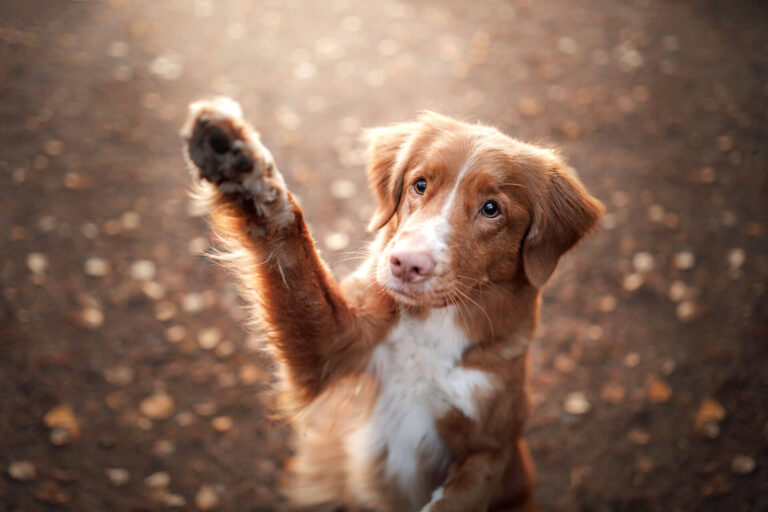Table of Contents
Are you looking to teach your dog some tricks and complex commands? As pet owners, we know how rewarding it can be to see our furry friends follow our instructions. But training a pup isn’t always easy – especially when it comes to teaching more advanced behaviors.
That’s why Advanced Training: Teaching Your Dog Tricks and Complex Commands is here! In this article, we’ll show you the tips and techniques that will help take your pet from novice to pro in no time. Well, provide step-by-step guidance on everything from basic obedience commands to fun party tricks.
So get ready for the journey of a lifetime with your four-legged friends as they learn new skills that will last a lifetime!
Understanding Your Dogs Learning Skills

An important part of teaching your dog tricks and complex commands is understanding their learning skills. Dogs are intelligent creatures, but not all of them learn the same way or at the same pace.
Some may be quicker to pick up on certain commands, while others may need more explanation and repetition before mastering a trick. To get the best out of advanced training with your pup, you must first understand how they learn so that you can tailor your approach to their individual needs and abilities.
One way to gain insight into your pet’s learning style is by observing them as they take in new information during training sessions. Pay attention to what kind of instruction works best for them; do they respond better when given verbal cues or hand signals? Are they able to retain information better when it is broken down into smaller pieces? Knowing this will help you adjust your instructions accordingly for optimal results.
You should also consider whether positive or negative reinforcement works best for motivating them during lessons; some dogs may find treats rewarding enough whereas others might only be motivated by punishment. Another factor that can affect their ability to learn effectively is physical activity levels – if they have too much energy, chances are it interferes with their concentration span and overall performance during training sessions! Finally, assess any existing behavioral problems which could impede progress such as fearfulness or aggression towards other animals or people – these issues need special consideration when teaching complex commands to ensure a safe environment for everyone involved.
By taking the time upfront to evaluate each unique aspect of your dog’s learning skillset, youre setting yourself up for success throughout the training process! With an understanding of how different factors influence their behavior and attitude towards obedience tasks, you can create strategies tailored specifically for each situation ensuring maximum progress from every lesson without compromising safety along the way!
Building Strong Communication and Clear Expectations

Teaching your dog tricks and complex commands can be a fun, rewarding experience. But to ensure success, it is important to build strong communication with your pup and lay out clear expectations.
Establishing a relationship based on trust through positive reinforcement is key. When teaching new commands, use consistent hand signals or verbal cues that your dog will recognize easily and respond to quickly.
Take the time to understand how your dog learns best so you can tailor the lessons accordingly. Make sure each practice session lasts no more than 10-15 minutes as this helps maintain focus and prevents boredom or fatigue for both of you.
By communicating effectively with your pet and setting realistic goals, training becomes an enjoyable activity for everyone involved!
Teaching Tricks with Positive Reinforcement

Teaching complex tricks using positive reinforcement can be a great way to build trust between you and your dog. It is important, however, to keep in mind that the most effective learning strategies rely on rewards for good behavior.
Using treats or verbal praise as rewards for success will encourage your dog to continue with its training and develop new skills quickly. Additionally, it is important not to rush the process; instead, take time with each step of the trick so they don’t become overwhelmed or frustrated by trying something too difficult too soon.
Breaking down each part of a trick into smaller steps can help increase success rates while mastering more advanced commands. Finally, make sure that sessions are short but frequent – this ensures that both trainer and pup remain focused throughout the lesson without becoming bored or distracted!
Troubleshooting Difficult Behaviors

Training a dog can be challenging, and sometimes it may seem like progress is slow or that certain behaviors just won’t take. If you find yourself in this situation, don’t give up hope! There are plenty of ways to troubleshoot difficult behaviors and move forward with teaching your pup new tricks and commands. First, identify the source of difficulty: What behavior has been giving you trouble? Is there an underlying cause for why your pup isn’t responding as expected? Are distractions around making it harder to focus on the task at hand? Once you have pinpointed the issue, determine what strategies might work best to address it.
For example, if distractions are an issue, consider removing them from view or training in quieter places until your pup can better concentrate. Another approach is to break down tasks into smaller steps so they’re easier for your pet to understand – think about how complicated instructions may sound confusing compared to simple ones – then gradually increase complexity as each step is mastered.
You could also try rewarding successes more frequently at first before switching back over time; positive reinforcement goes a long way! If things still aren’t working out after trying these methods yourself, consider consulting with a professional trainer who has experience helping dogs learn complex behaviors and commands.
Conclusion

Properly training your dog can be both beneficial and enjoyable. Dog Training Greenwood offers advanced courses to help you teach your pup complex commands and tricks efficiently and effectively. With the right methods, patience, and practice, you’ll be able to give your canine companion all of the skills they need for a happy life together.

